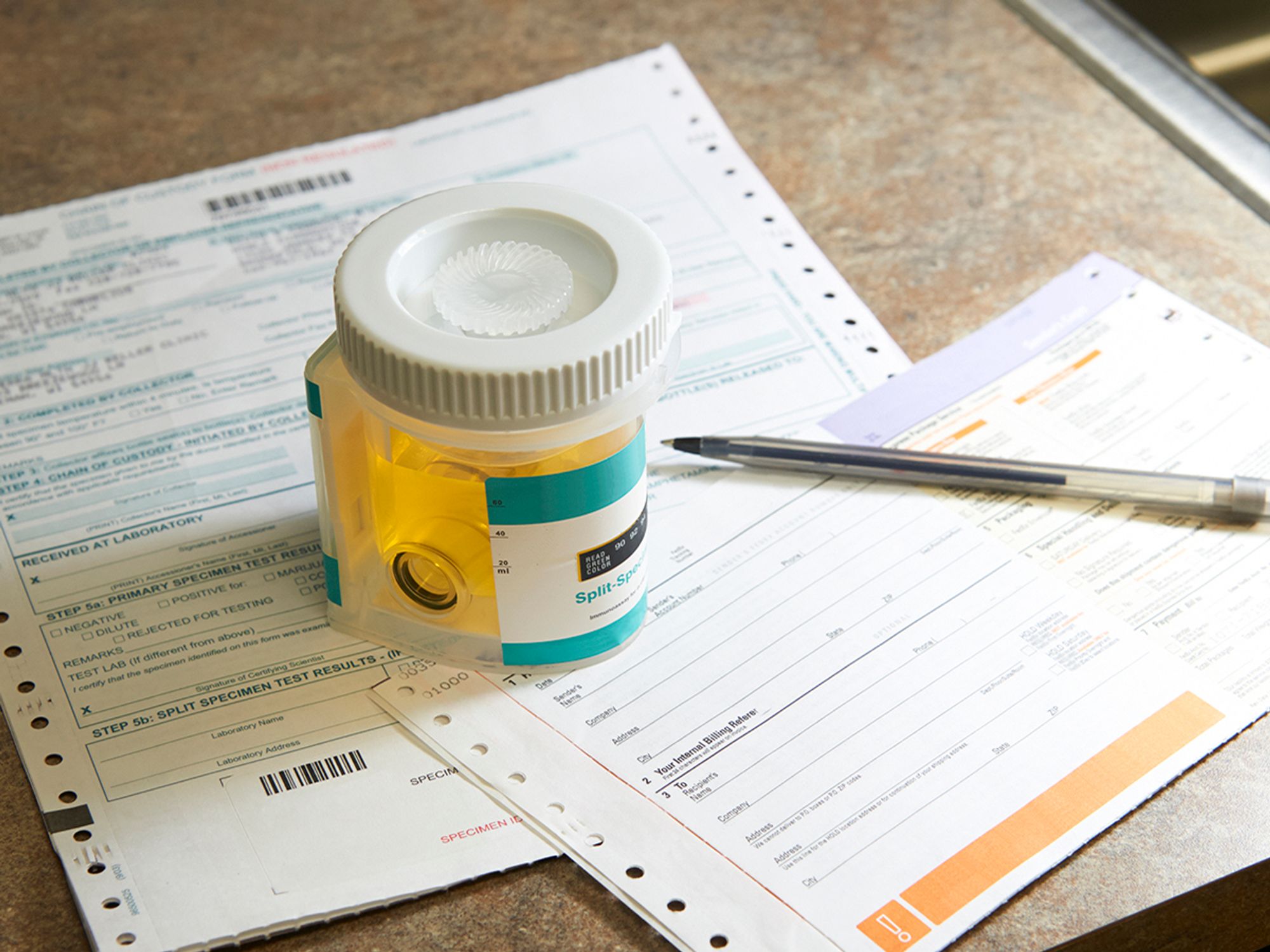Drug testing

- It is lawful for employers to set up a drug testing program that fits its workplace needs, but state and federal laws must be considered.
- Federal and state laws impact the timing of drug tests and the consequences of a positive test.
- It is lawful for employers to drug test employees before and during employment in accordance with any applicable regulations.
When conducting a drug test, federal and state laws must be considered. These include laws relating to when and how a drug test is conducted and the consequences of a positive test.
These federal laws impact drug testing:
| Law | Applies to | Drug testing impact |
|---|---|---|
| Americans with Disabilities Act (ADA) | Employers with 15 or more employees |
|
| Family and Medical Leave Act (FMLA) | Employers with 50 or more employees, all public employers | Time off for leave to attend a rehabilitation program |
| Occupational Safety and Health Act (OSHA) | Employers with 1 or more employees | Some post-accident testing considerations |
| Drug-Free Workplace Act of 1988 | Federal contractors with a contract of $100,000 or more, recipients of federal grants | Drug-free workplace statement that notifies employees of what is prohibited and the actions that will be taken against employees who violate the policy |
State laws may also make an impact on when and how a drug test is conducted. Some state laws limit random tests, require a specific drug testing panel to be used, limit-on-site testing, or restrict drug testing in another way. See the State Laws section for specific requirements. Tests for alcohol are considered a medical exam under the Americans with Disabilities Act (ADA) and have their own requirements.
When to test
An employer may conduct drug tests at various times before a person is hired and during employment. A workplace drug testing program may include these types of tests:
- Pre-employment: A test typically given after a job offer is made but before a person begins working.
- Random: An unannounced test given to a randomly selected group of people.
- Reasonable suspicion: A test given when an individual is suspected of being under the influence of drugs or alcohol.
- Post-accident: A test conducted after a workplace accident to help determine the root cause of the accident.
- Return-to-duty: Testing conducted randomly after a person completes a drug or alcohol rehabilitation program.
